Temple Of Artemis
Grateful Gut - Your Daily Digestion Tea
Grateful Gut - Your Daily Digestion Tea
A gentle blend that stimulates digestive flow and helps relieve gas and bloating. Feel more at ease as this soothing tea supports your entire digestive system, bringing you both immediate comfort and long-term balance to your gut health.
Couldn't load pickup availability
- Organic Plants
- Herbalist Blended
- Science Backed
Spiritual Benefits
Spiritual Benefits
As you nourish your gut, you cultivate a deeper sense of connection with your body, allowing for greater emotional clarity and peace. A grounded gut helps you stay present and aligned, fostering a harmonious flow of energy throughout your mind, body, and spirit.
Physical Benefits
Physical Benefits
This carefully crafted blend helps to stimulate digestive flow, alleviate gas and bloating, and promote overall gut health. Packed with herbs known for their calming and restorative properties, it supports digestion and enhances nutrient absorption, leaving you feeling lighter, more comfortable, and energized. A balanced gut is the foundation for a healthy body and vibrant vitality.
Scientific Research
Scientific Research
The herbs that work synergistically to support your digestive health, reduce inflammation, and bring balance to your gut...
Peppermint: Known for its calming effect on the digestive system, peppermint has been shown to alleviate symptoms of IBS, bloating, and indigestion.
Wood Betony: Traditionally used to support digestive function, studies suggest it may help soothe and support the intestines and relieve discomfort.
Plantain: This herb is rich in mucilage, which helps to soothe and protect the digestive tract lining, reducing irritation and inflammation.
Marshmallow: Like plantain, marshmallow root is high in mucilage, which aids in relieving inflammation and promoting digestive comfort.
Meadowsweet: A natural anti-inflammatory, meadowsweet has been used for centuries to ease digestive distress and support overall gut health.
Calendula: Known for its healing properties, calendula can help soothe digestive upset and improve gut health by reducing inflammation.
Dandelion Leaf: Dandelion supports liver health and digestion by acting as a mild diuretic and promoting bile production, which is essential for fat digestion.
Heather: Often used for its soothing and anti-inflammatory properties, heather can help calm digestive disturbances and improve overall gut function.
Cornflower: This herb has been shown to have anti-inflammatory properties, supporting digestion and helping to reduce bloating and discomfort.
Product FAQ
Product FAQ
Q: When should I drink Grateful Gut Tea?
A: For optimal benefits, we recommend drinking Grateful Gut Tea after meals. It helps soothe the digestive system, promote healthy digestion, and relieve gas and bloating.
Q: How often can I drink this tea?
A: You can enjoy Grateful Gut Tea after every meal for consistent digestive support. If you have any specific digestive concerns, it's safe to drink 1-3 times daily.
Q: Can I drink this tea if I have sensitive stomach issues?
A: Yes! Grateful Gut Tea is a gentle blend designed to calm and soothe. If you're unsure or have specific conditions, consult your healthcare provider before use.
Q: How long will it take to feel the benefits?
A: Many people experience relief from bloating and discomfort after just one cup. For long-term benefits, we recommend drinking the tea regularly to support your digestive health over time.
Q: Are the ingredients organic?
A: Yes, all of the herbs in Grateful Gut Tea are organically sourced, ensuring the highest quality and purity for your digestive health.
Ingredients
Ingredients
Peppermint · Wood Betony · Plantain Marshmallow · Meadowsweet · Calendula Dandelion Leaf · Heather & Cornflower



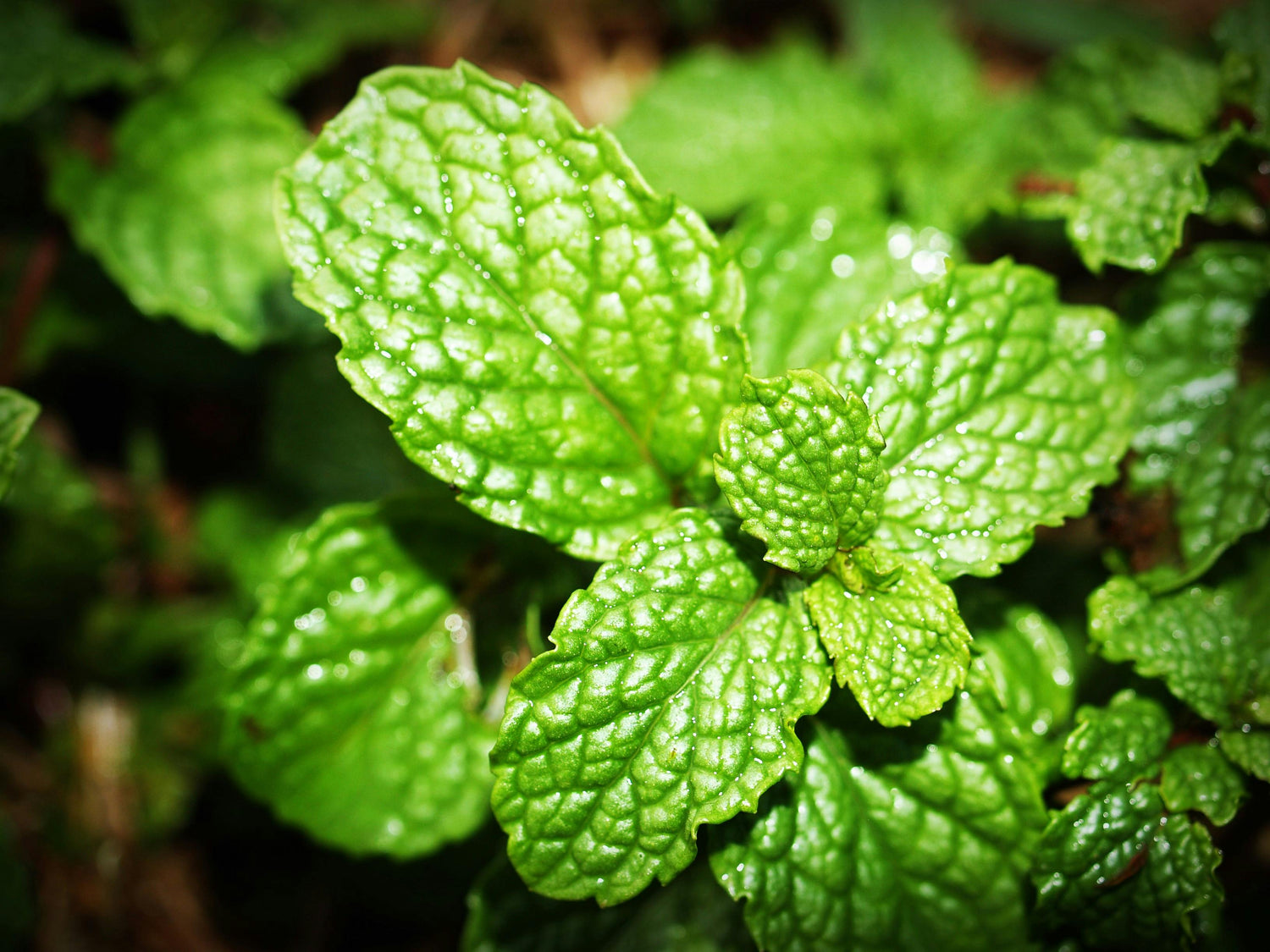
Mentha x piperita
Peppermint
Peppermint is one of the most beloved and widely used herbs across the world. Historically, the ancient Egyptians used peppermint in both cooking and for its medicinal properties. It’s been revered for centuries to support the digestive system, but it also offers energizing benefits, helping to uplift the mind and body. Peppermint was used in ancient Rome as a natural remedy for colds and digestive issues, and its leaves were often added to baths to enhance mental clarity and focus.
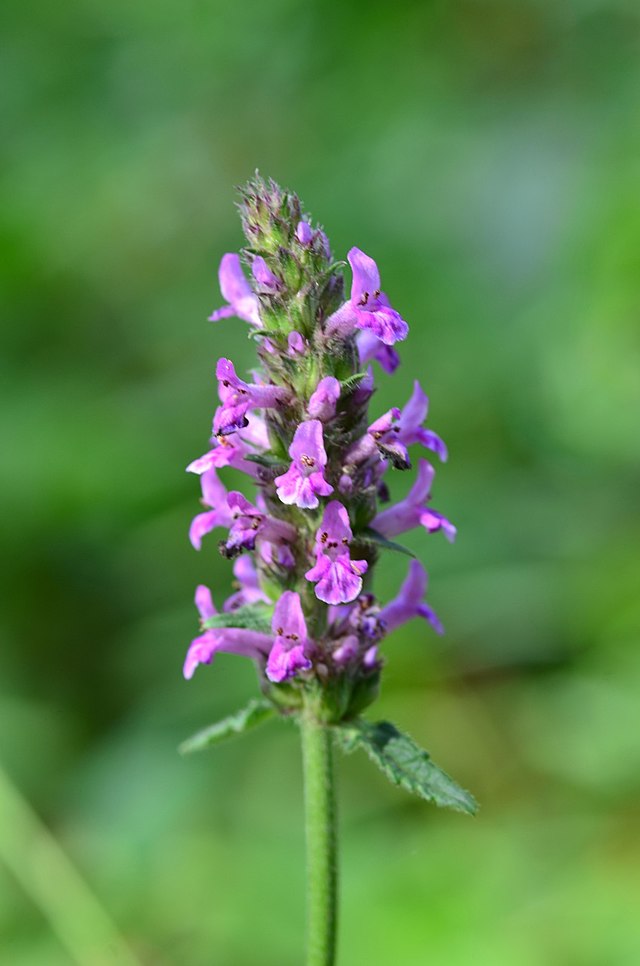
Stachys officinalis
Wood Betony
Wood Betony is an herb with deep roots in European herbalism, dating back to the Middle Ages. Known as a “herb for the head,” it has been traditionally used to ease headaches, anxiety, and nervous tension. Wood Betony was prized by ancient herbalists for its calming qualities and was often used to help relax the body and mind. This herb was so highly regarded that it was even believed to have protective qualities against evil spirits in folklore! It’s a great herb for overall vitality, helping to restore balance and alleviate feelings of stress or discomfort.

Plantago lanceolata
Plantain Leaf
Plantain has a long history of use across both European and Native American traditions. In Native American herbalism, it was often referred to as “the healer’s herb,” as it was believed to have the ability to address a wide range of ailments. Historically, Plantain was used topically to soothe skin irritations and internal discomforts. Plantain’s broad, sturdy leaves have earned it the nickname “white man’s foot,” as the herb is commonly found growing in disturbed soil near human settlements. This resilient herb is known for its calming properties and is often used for its ability to balance and soothe the body.
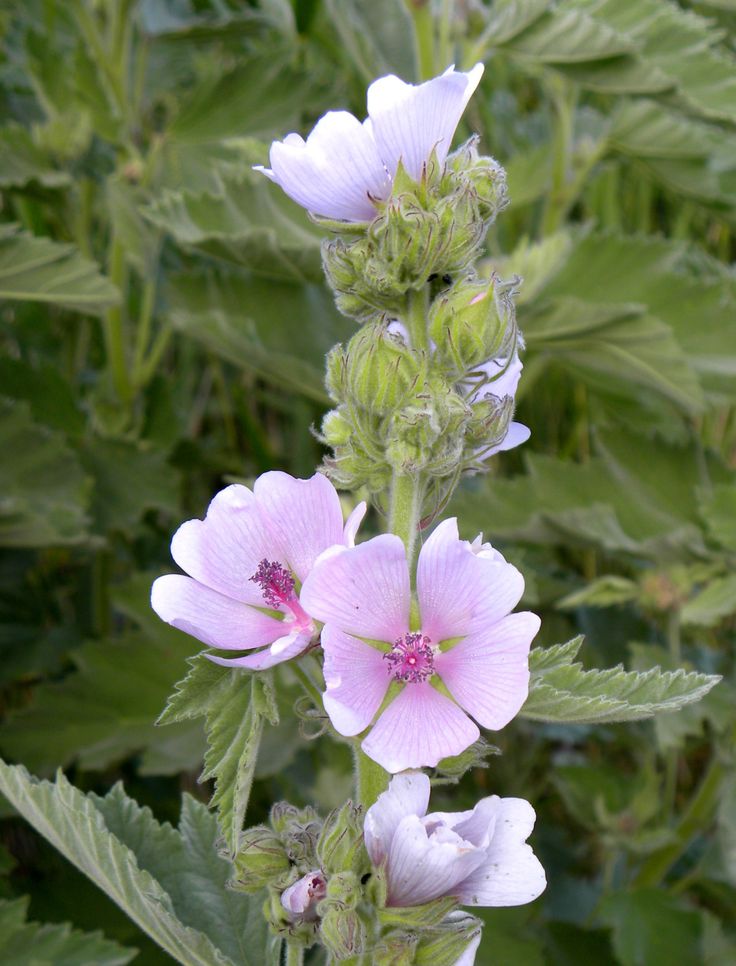
Althaea officinalis
Marshmallow
Marshmallow has been used since ancient Egyptian times, where it was prized for its soothing qualities. Known for its mucilaginous texture, Marshmallow root has been traditionally used in herbal medicine to calm inflammation and irritations. Marshmallow was originally made from the root of the plant, which was used to make the sweet treat we know today. While the candy has evolved over time, Marshmallow’s medicinal properties remain well-loved in herbal medicine for soothing discomfort and promoting healthy skin.
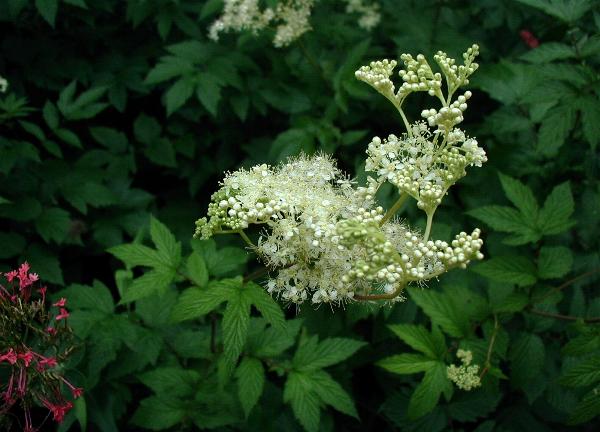
Filipendula ulmaria
Meadowsweet
Meadowsweet is an herb with a rich history in European herbal medicine, particularly in the British Isles. It’s closely associated with ancient Celtic rituals and was believed to be sacred. Meadowsweet’s calming, anti-inflammatory properties were revered by herbalists, and it was used to help ease sore muscles, headaches, and digestive discomfort. Meadowsweet contains a compound similar to aspirin (salicylic acid), which is why it has been historically used as a remedy for pain and inflammation. It’s a gentle herb that supports the body’s natural ability to restore balance and comfort.
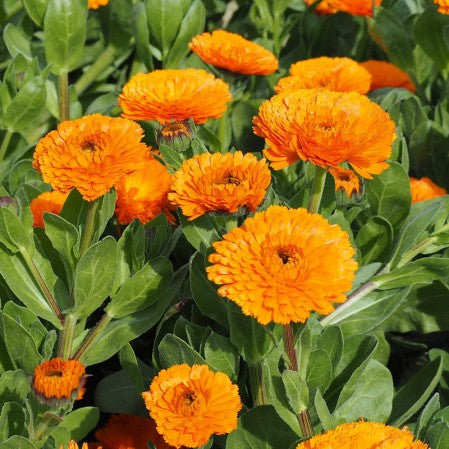
Calendula officinalis
Calendula
Calendula has a vibrant golden-orange hue that has been cherished for centuries for its healing properties. Native to Southern Europe, it has long been used as a remedy for minor wounds, rashes, and skin irritations. Calendula was a favorite of the ancient Greeks and Romans, who used the petals in their food and medicine, believing it to have both physical and spiritual healing properties. Known for its ability to promote skin health and ease inflammation, Calendula is also a mild, soothing herb that has a longstanding place in both topical and internal herbal remedies.
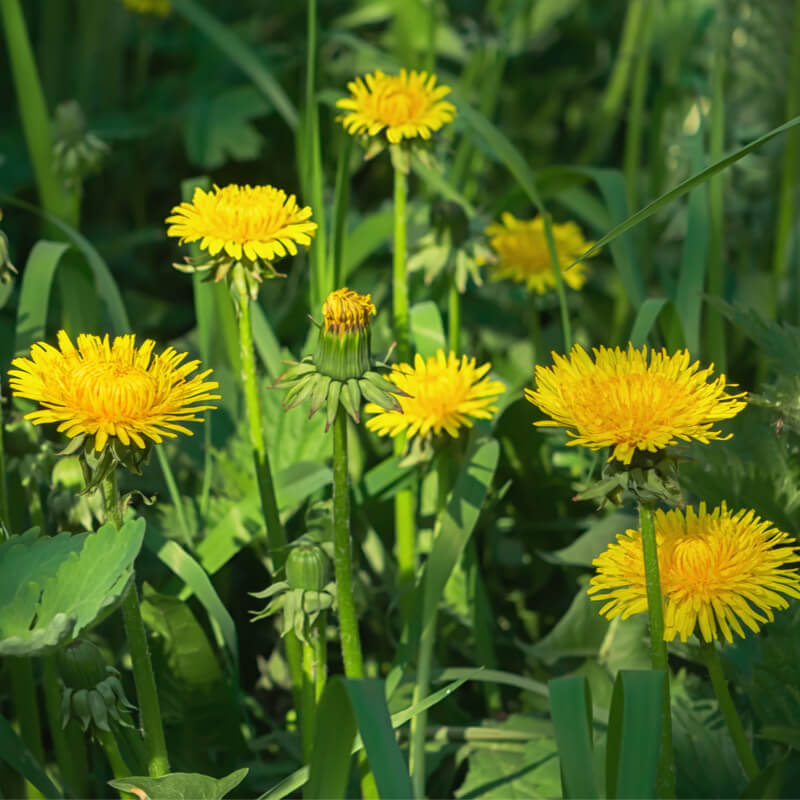
Taraxacum officinale
Dandelion Leaf
Dandelion is often seen as a pesky weed, but it has a rich history of use in herbal medicine, stretching back thousands of years. Ancient herbalists prized every part of the dandelion for its health benefits—roots, leaves, and flowers. It was traditionally used in European herbal medicine for its ability to support liver health and cleanse the body. Dandelions were once considered so valuable that they were cultivated for both food and medicinal purposes during times of scarcity. Today, Dandelion leaf is often used as a gentle detoxifier and a tonic to help the body restore balance.
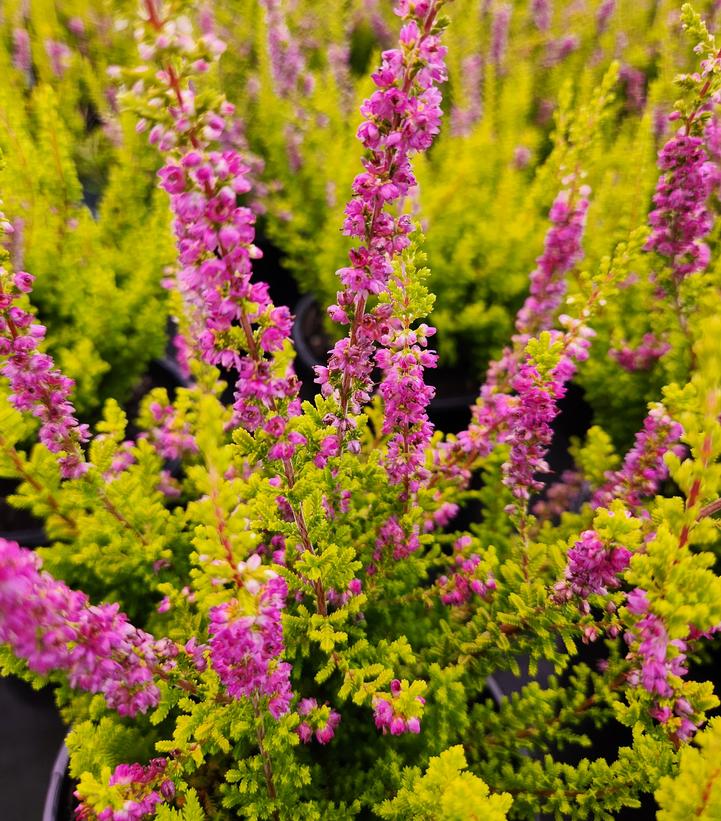
Calluna vulgaris
Heather
Heather has a long history in European and Celtic traditions, where it was believed to have protective and healing qualities. Heather was often used in baths, tonics, and infusions for its calming effects on both the body and mind. Fun fact: Heather is considered a symbol of good luck in folklore, and it was believed to have the ability to ward off evil spirits. It is used for its gentle calming properties, helping to ease anxiety and promote peaceful sleep. Known for its nurturing qualities, Heather is a favorite herb for restoring harmony and peace.
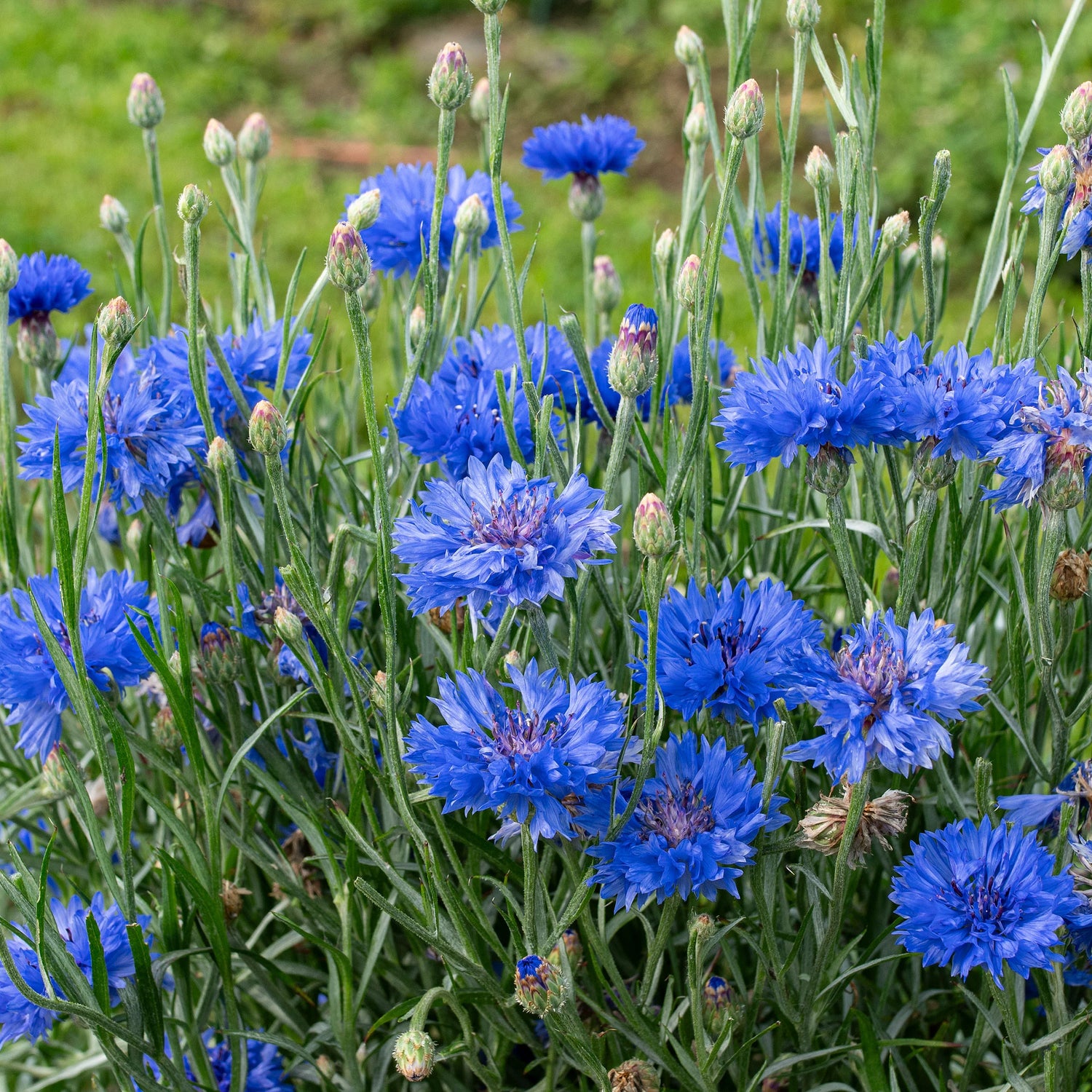
Centaurea cyanus
Cornflower
Cornflower, with its striking blue petals, has been used in herbal medicine for centuries. It was traditionally used to soothe and calm the body, particularly for eye health and skin conditions. Cornflower has a gentle, cooling effect and was often used as a mild remedy in teas and infusions. The flower was once considered a symbol of love and loyalty in European folklore, and it was worn in traditional floral garlands. It is celebrated for its calming, soothing qualities, and is known for its ability to gently promote balance in the body.



